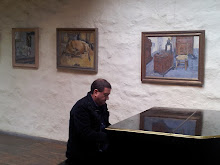What horrifies you more, a politician talking about morals or The Exorcist?
I use the movie The Exorcist as an example of something that is universally accepted as horrifying, well; it is by me. However, is it less scary than a politician talking about morals?
Whenever you read something about a politician talking about morals in a newspaper today, it usually comes across as, “who are these people to talk to us about morals?” The outrage is palpable from columnists and in opinion pieces when a politician dares say anything that even sounds like the slightest expression of morality.
Simon Jenkins who writes for the Guardian wants his readers to “Dive for cover – Boris Johnson is invoking 'morality' in his Covid policies”. The COVID-19 issue has raised moral concerns like never before. It has even affected the sacred moral ground of professional sport, according to ESPN and politicians. “Premier League stars lack morals in coronavirus crisis –politicians”.
COVID-19 has brought out many moral issues, but can people please stop calling me a monster for scratching my face. Or giving me a look of horror if I dare to cough in public.
According to some newspapers, a certain political leader has a diminished moral capacity. Yet other papers tell you that the same person is the only moral hope for the world. Guess who I’m talking about? I won’t go into the moral wrongs surrounding climate change, regardless of how real they are. But why aren’t politicians talking about morals outside issues like the pandemic? Do they really have no morals that they can talk about?
Of course, they do. They are just as human and just as vulnerable as everyone else. But why aren’t politicians talking about the moral good? When Nietzsche killed off god in 1882, did the ability to talk about morals die too? Or is it that politicians think that we don’t have any morals so there’s no point in talking about them anymore? Or is it vice versa?
Politicians are scared about discussing morals because they have created a vacuum of silence around morality. When we see things like an Australian government bugging a neighbouring countries government to gain a political and monetary advantage, and then try to silence anyone who points out their illegalities, it’s no wonder politicians don’t talk about morals.
However, that aside, if it’s possible, our leaders need to be talking about morals so we can open up debate about what is right and wrong. A vote once every three or four years is nowhere near good enough to express our moral concerns. And for that to begin, we need our leaders to lead the way. How do we do that?
In the 2019 book, Do Morals Matter? Presidents and Foreign Policy from FDR to Trump by the American political scientist Joseph Nye, he has constructed a scorecard for judging future presidents. Maybe it's something like this that we should use to gauge the moral reasoning of not just foreign policy, but all policies by politicians.
Imagine that. A moral scorecard for every policy. Imagine thinking
through and debating the moral issues surrounding national affairs. Hold on, I
hear you say, that’s why we have elected representatives. But are our
politicians debating the moral concerns around political matters? I think not. In
fact, I’m positive they do not. Our new moral scorecard could be something as
simple as a 1 to 10 rating that all voters could have a show of hands on.
If we can elect governments electronically, why not a vote on policies electronically? Sure it would mean a lot more voting for us to do, but as politicians cannot be trusted to do the right thing, it’s a small price to pay to get morally just policies into action. If politicians are not going to look at the moral implications when implementing policy, something needs to be done.
You could say the moral of this story is, it’s immoral to disregard the moral issues of any policy.






